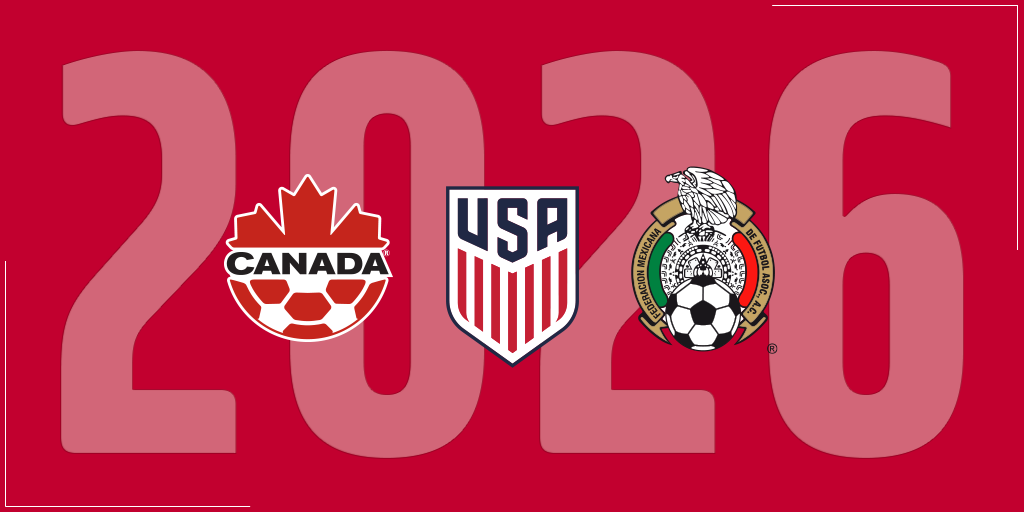
The joint 2026 World Cup bid from the U.S., Canada and Mexico remains the favorite to earn hosting rights, but the North American countries experienced a minor hurdle on Tuesday afternoon.
At Tuesday’s FIFA Council meeting, it was decided that other nations would be given until August to bid on the right to host the 2026 World Cup. The North American bid was previously hoping for the process to be fast-tracked and exclusive, which would have allowed one year for the bid to receive approval while facing no competition from other nations.
FIFA voted against that process on Tuesday, opening the door slightly for another contender to emerge. European and Asian countries are out of the running for the 2026 tournament due to their hosting duties in 2018 and 2022, respectively, while Oceania and South America have already thrown their support behind the North American bid with eyes on a future World Cup for themselves.
That leaves Africa as the only continent that could submit a feasible bit with Morocco rumored to be one nation interested.
Still, the North American bid remains the heavy favorite as FIFA did opt to fast-track the process with a decision set to come in 2018.


The US should tell FIFA to stuff it. Let them pillage someone else’s coffers, with their 5-star hotel requirements for their execs, and reserved center line seats. All of these international events are a sham, where the international body gets rich at the expense of the actual athletes.
No country in Africa can afford the level of bribes it would take to win this. North America is a huge cash cow, enough to provide FIFA with opera big money for a decade and they can then use the next few World Cup bid processes to line their pockets.
Translation:
We’re most likely going to give you the WC, but we want to give our members ample opportunity to accept bribes from other countries before we give it to you.
My thought exactly.
Pretty much.
Of course. Why go with the sure thing when you can create instability? Why go with transparency when you can create opacity? Why give everyone a comfort level that the first expanded version of the world cup will go smoothly when you can threaten to award it to an African nation(s) with weaker infrastructure just so that FIFA can threaten to pull the world cup if the US does not respect “human rights” and the “universal right to free movement…?”
I could understand the delay if Oceania and South America were considering submitting bids, but this is ridiculous. Name 3-4 African countries who can provide the stadiums, hotels, infrastructure, ect… to equal what the CONCACAF bid offers. I’m not sure that FIFA can be loathed any more than under the Blatter regime, but it sure is giving it a try…
You make absolutely no sense.
Strange. I myself understood and agreed with every word of that post.
Perhaps it’s the French accent that’s throwing off the MexiTroll? Dunno.
Lil’ Bobby: I would be concerned if you *did* understand my post…
Rob telling someone they don’t make sense. Best joke he has mad yet. LOL at “lil bobby” frenchone.
Actually, I think that not giving exclusivity makes FIFA look better. FIFA has been criticized, and rightly so, for making decisions behind closed doors without competition or for nefarious and corrupt competition practices.
While the “exclusivity” would have benefited the US – or the USSF – I think keeping the bidding open will be better in the event the CONCACAF joint bid is accepted, because everyone had the chance to bid and the decision is made based on the bid, not because of some procedural secrecy.
the only part of your comment that i disagree with is that you think this has anything to do with politics (“human rights”, “universal right to free movement”). fifa couldn’t care less about politics; this is all about creating an opportunity for increased bribery.
I don’t think it has anything to do with human rights (thus, the quotes), but FIFA and the Olympic committee sometimes like to act like they hold some moral authority on such weighty issues…